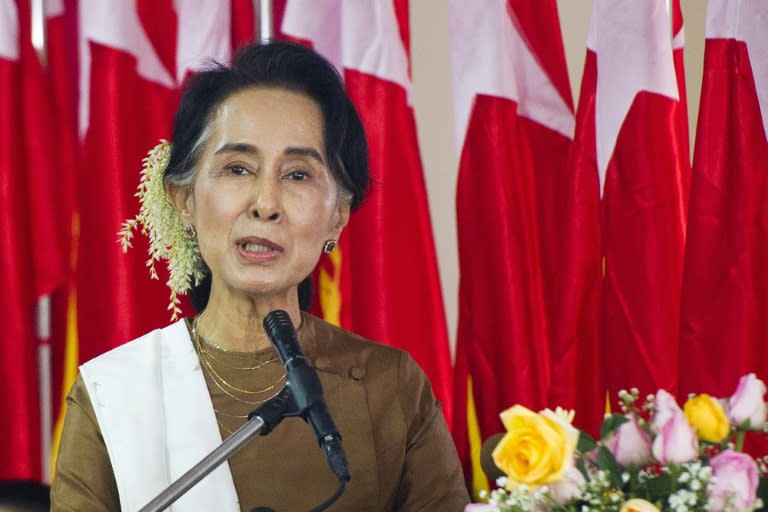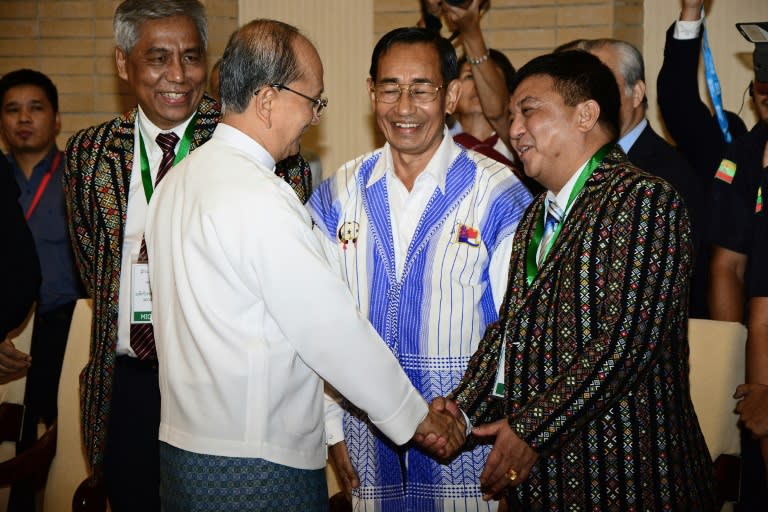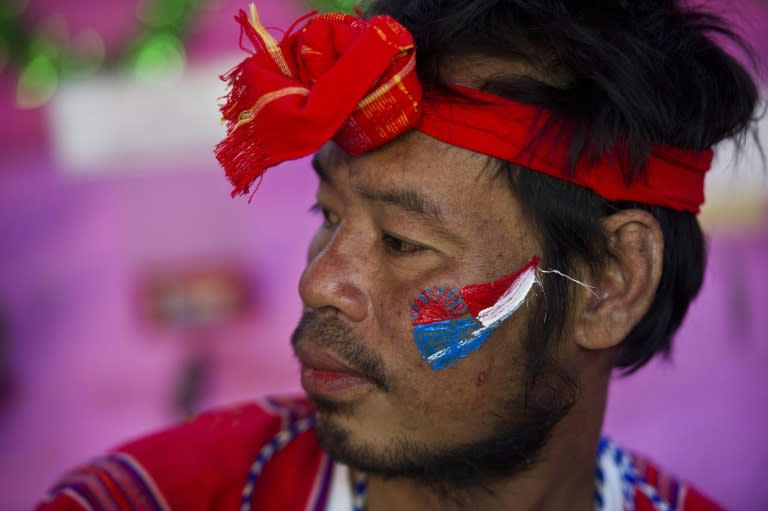Myanmar ethnic groups place faith in Suu Kyi govt for peace
Rebel negotiators applauded talks with Myanmar authorities Saturday at the end of five days of discussions, but said the real business of crafting peace rests with Aung San Suu Kyi's government-in-waiting. The delicate negotiations to end long-running wars between Myanmar's patchwork of ethnic minorities and the state have been steered by the current quasi-civilian government, which replaced a military junta in 2011. But the difficult task of implementing the peace process will be handed over to the new government, led by Suu Kyi's National League of Democracy (NLD) party, which will take office later this year after sweeping historic elections last November. "This peace talk was like a foundation for upcoming peace conferences," said Col. Khun Okkar, the of the head Pa-O National Liberation Organisation (PNLO), an ethnic rebel group in Myanmar's Shan State. "The next government will lead the real peace talk," he said. Representatives from armed ethnic factions, the government and army, agreed this week to conclude the peace process within the next five years, said Aung Min, a government minister who facilitated the meetings. Ahead of November's elections, analysts predicted that Suu Kyi, 70, would struggle to win support among minority voters because of her ethnic Bamar heritage. But her party scooped up a vast majority of elected seats across the country, even beating out some ethnic parties on their home turf in the frontier regions. At the opening of the peace talks on Tuesday, Suu Kyi pledged to make peace a priority of her administration, citing "the mandate given to us by the people and ethnic minorities." Speaking to AFP after the talks Saturday, Salai Lian Mone Ar Khaung, a representative from rebel ethnic group the Chin National Front, said he was hopeful that the NLD would understand his people's wishes for greater autonomy. "The new government came from the hearts of people and it is believed that they love democracy," he said. "So I strongly hope they will hear the wishes of people who are thirsty for peace." However, significant stumbling blocks still lie ahead, with several major ethnic armies boycotting the talks altogether and refusing to sign a ceasefire in October. Another critical challenge will be Suu Kyi's strained relationship with the nation's still hugely powerful military, which holds the key to securing a lasting peace. The Myanmar army's top representative vowed on Saturday to cooperate with the next administration as the negotiations continue. "The Tatmadaw (Myanmar army) will help any government succeed in the peace process," Khin Zaw Oo, a former lieutenant general, told reporters. "The government will change soon but the peace process will not stop."




